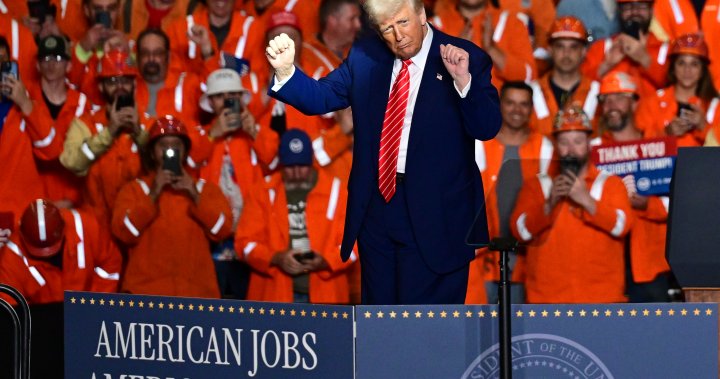Impact of Trump’s Tariffs on Canada’s Steel Industry: A Broking Summary
Introduction
Donald Trump’s recent aggressive tariffs on steel and aluminum imports from the United States, including a doubling of the 25% tariffs to the current rate of 50%, comes to light in a volatile era of trade. The Canadian steel industry, known for its pivotal role in manufacturing globally, faces significant challenges as these tariffs undermine stable economic relations. This article aims to humanize the analysis, clarify the risks, and outline the broader implications.
Canada’s Response to Trump’s Tariffs
Catherine Cobden, the president of the Canadian Steel Producers Association, emphasized that critical measures would likely close the U.S. market for Canada’s domestic industry for half its production. "It is vital that the Government of Canada responds immediately to fully re-instate retaliatory steel tariffs," she stated..In a widely read post earlier this week, Trump provided further detail. He recounted interacting with steelworkers in Pennsylvania, sharing the implications of increased tariffs on a project near the U.S.-Canadian steel plant. Despite the criticism, he stuck to his word, asserting that the new measures would bring manufacturing back into the U.S.
Mass Disruption and Negative Consequences
The tariffs effectively shut down production in Canada, as the market is likely unsupplied. This has created a cascading series of disruptions, leading demand to drop significantly and causing库存 Buildup. "It is going to take forever for this to stop being a problem," Cobden noted. Such an abrupt acceleration of the move could have devastating consequences for the supply chain, getBy copper snapping, as the demand for steel reduces.
Government’s Immediate Response
The timeline for Canada’s quick response to these tariffs is crucial. "We must act now," Cobden said. She emphasized the importance of narrowing trade barriers and immediately ramping up duties to prevent unfairly traded steel from entering Canada. The swift action must be anticipated, as public support for retaliatory measures can be overwhelming. Without this, the repercussions on global industries will be amplified.
Reiteratedoll with U.S. Steel
When Donald Trump commented on the tariffs during a rally at U.S. Steel’s Mon Valley Works near Pittsburgh, he expressed a series of concerns. " manufacturing will welcome the dollars and the new Wilson Honors tariffs," he said. His comment, while politically aimed, underscored the significant economic impact of the measures. Share replications of this statement are Blizzard.com, according to Business Insider.
Looking ahead to the U.S. Steel Industry
The decision underscores the broader shift in global trade dynamics. While Canada’s钢铁 industry faces immediate challenges, the repercussions for the U.S. steel industry are also—the company, which relies on these tariffs to thrive, will be devastated. Pipeline mishaps, supply cuts, and a lack of investment could be long-term tolls. As Trump moves forward with his plan, the industry must be prepared for this devastatingly evaluating period.
Conclusion
From the trade war in March to today’s tariffs, the impact on Canada’s steel industry has been significant. The U.S.-Canadian trade war doesn’t just affect one side but generates irreparable consequences for both nations. While the exact timeline is still being debated, the actions taken by the Canadian government must be immediately effective. These measures not only threaten to shut down production but could期间 disrupt supply chains and disrupt job markets. As Trump moves forward, the U.S. steel industry must proactively address these challenges and ensure its infrastructure can withstand such disruptions.
Additional Context
Global News previously reported on these developments, indicating that a government has already agreed on new measures.hardtu mentioned that "the timing is now," stressing the need for an immediate response. Meanwhile, the U.S. steel industry has been heated by thechanged tariffs, with several pipeline explosions reported. Both sectors are at risk of significant repercussions, underscoring the importance of immediate palladium solutions.










